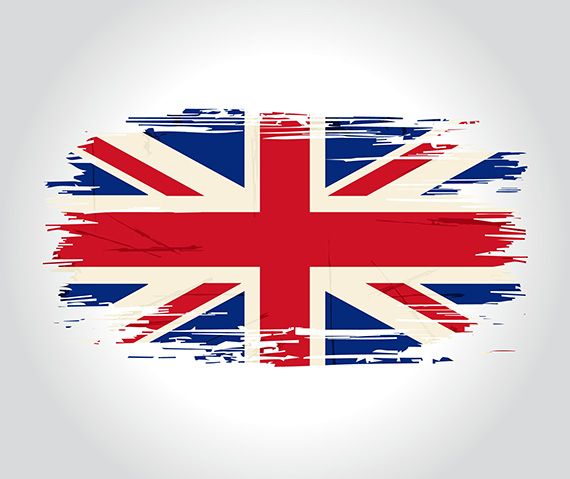More news
- Nigeria’s paint industry navigates regulatory changes and economic challenges amid p...
- Focus on the global coatings market: Global coatings market outlook
- Innovative coatings mitigate effects of deepening climate change
- Ask Joe Powder – October 2024
- Chinese paint majors look to domestic consumer sales as commercial real estate slumps

In an era where paint shops must focus on becoming “greener” to help vehicle manufacturers feel certain about meeting their ambitious climate targets, assessing the available technology’s sustainability is a complex task. In a comprehensive life cycle analysis, the Fraunhofer Institute for Building Physics (IBP) studied the carbon footprint of two different paint shop concepts. The result: Dürr’s paint shop with the EcoQPower system, which networks all energy flows to supply the entire process, reduces carbon emissions by 19.2% over its lifecycle compared to paint shops without. This comes from an energy consumption reduction of approximately 21% in the utilisation phase, making it the first paint shop to comply with EU Taxonomy requirements.
Paint shops are responsible for the highest amount of energy use in the entire vehicle manufacturing process since applying paint and drying car bodies are so energy-intensive. Consequently, modern paint shops have a significant carbon footprint despite technical progress. “The EU wants to be climate neutral by 2050. We had this target in mind when we adopted our new strategy to reach carbon-neutral paint shops from an energy perspective. Instead of continuously increasing the energy efficiency of individual elements such as paint booths and ovens, as we have done previously, we developed the EcoQPower system, which considers all paint shop energy sources, network components and energy flows,” explained Jens Oliver Reiner, Senior Vice President Sales in the Paint and Final Assembly division at Dürr. The new concept analyses energy sources and energy sinks in operation, considering various operating states and historic climate data. Based on this analysis, the EcoQPower energy network systematically recovers energy in one place, which can then be reused elsewhere.
READ MORE:
It’s a wrap! Middle East Coatings Show welcomes record number of visitors to Cairo
Significant carbon footprint reduction
Despite promises, sustainability initiatives frequently fall into the category of greenwashing. Dürr partnered with the IBP to prove that the first paint shop optimised with EcoQPower being built for a German vehicle manufacturer emits fewer greenhouse gases than a paint shop without the energy network system. Scientists analysed the effects on carbon emissions by simulating and calculating the values for two identical, all-electric factories in the same location and with the same performance data – one with and one without EcoQPower.
In keeping with the circular economy, the entire lifecycle from paint shop production, including the transportation of materials to the utilisation phase and the end of life, was analysed. The IBP study found that the EcoQPower system reduced the carbon footprint by 19.2% over this entire period. Since 91% of emissions are produced in the utilisation phase, EcoQPower enables paint shop operators to run a more climate-friendly process. The technology investment also pays off in terms of sustainability, with Dürr’s energy consumption analysis confirming that EcoQPower reduces utilisation phase energy consumption by 20.6%, making the optimised paint shop about 21% more energy efficient than a conventional system. As a result, operators can reduce their energy costs by seven figures (over the assumed utilisation period of 15 years and 110,000 painted car bodies per year).
No more unused energy with EcoQPower
EcoQPower is based on the concept that each manufacturing area only receives the appropriate energy and temperature level it actually needs. In a standard paint shop, all process steps, such as pretreatment, the oven, and the paint booth, are viewed and supplied as individual components. For example, excess energy from the drying process that could be applied elsewhere is released unused into the environment. By considering the entire scope, the EcoQPower system delivers real benefits by integrating all waste heat sources, including those not previously used, and reusing energy at low temperatures. Heat pumps generate heating and cooling energy simultaneously, which is possible because Dürr’s experts measure heating and cooling requirements for each step of the paint shop process using proprietary software. With this knowledge, Dürr leverages synergies from the processes and – in combination with resource-saving technology – enables economical energy use.
EU Taxonomy defines standards for sustainable projects
The EU Taxonomy is an instrument developed under the Green Deal, with the political objective of making Europe the first climate-neutral continent by 2050. By providing a transparent classification of sustainable investments, the regulation aims to ensure that financial resources fund projects that support climate and environmental protection. “Sustainability is becoming increasingly important for companies in the manufacturing sector. We help our customers make their production processes as energy-efficient as possible to achieve their decarbonisation targets. We know that companies engaged in sustainable production will have more and more advantages in the long term for sourcing funding in Europe,” explains Reiner.
Image caption: EcoQPower networks all cooling and heating flows across all process steps to supply each area with exactly what’s needed







